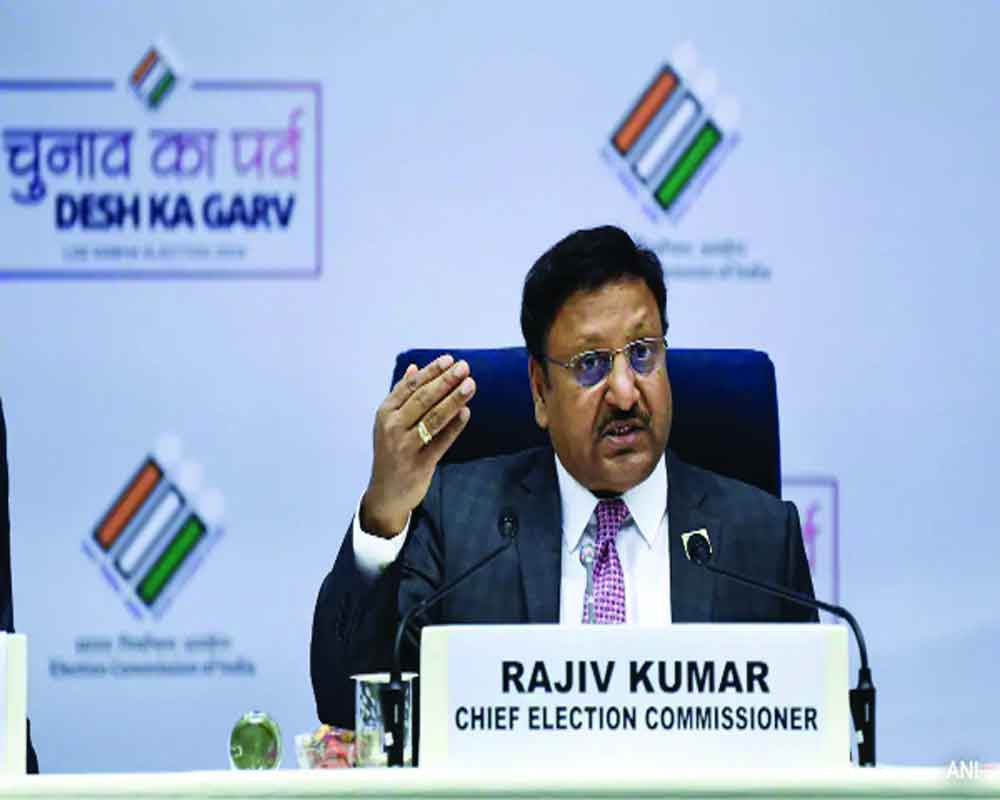The announcement of dates for the Lok Sabha elections kicks off a massive electoral exercise
India, the world’s largest democracy, is gearing up once again for its general elections, a monumental event that not only captures the attention of the nation but also echoes globally. On Saturday Chief Election Commissioner Rajiv Kumar disclosed the schedule for the forthcoming Lok Sabha elections. The electoral process will unfold in 7 phases, commencing on April 19 and concluding on June 1, with the results slated for announcement on June 4. Notably, simultaneous polls will not be conducted. The Election Commissioner emphasised its commitment to addressing the challenges posed by the “4Ms” — muscle power, financial influence, misinformation, and violations of the Model Code of Conduct — which pose obstacles to the conduct of free and fair elections. With the announcement of election dates, the nation is now abuzz with political fervour and anticipation, as preparations kick into high gear. However, amid the excitement, challenges loom, including completing the exercise peacefully, ensuring free and pare elections and ensuring a level playing field for all participants, a task that even the esteemed Election Commission of India finds daunting.
To have an idea of the scale of Indian elections savour this: With over one million polling stations set up across the nation and a staggering 969 million registered voters, along with the participation of 2,660 registered political parties and independent candidates, India’s upcoming general elections are poised to be an unprecedented democratic spectacle. Spanning across 82 days and divided into seven phases, this electoral exercise is anticipated to be the world’s most expensive election to date. With political parties and candidates vying for the attention of voters, the projected expenditure on campaigning and electioneering activities is estimated to surpass a staggering 1.2 trillion rupees, underscoring the immense scale and significance of India’s democratic process. There would be a polling station at the altitude of 15,256 feet. This much-awaited declaration marks the initiation of a meticulous and extensive process that will culminate in the formation of the next government. From the deployment of security personnel to the procurement of electronic voting machines (EVMs) and the training of election officials the Election Commission is busy preparing for this gigantic democratic exercise. Despite the best efforts of the Election Commission, ensuring a level playing field for all participants remains a significant challenge. The democratic ethos of India hinges on the principle of fair and free elections, where every citizen has an equal opportunity to participate and express their will through the ballot box. However, in reality, achieving this ideal is fraught with obstacles. In this gigantic our participation remains a crucial factor. Voter apathy is unacceptable. We must vote no matter what. Should you harbour reservations about the candidates, you have the option to exercise the ‘none of the above’ (NOTA) provision. While your vote under NOTA might not be tallied, it still signifies your expression of opinion.


























